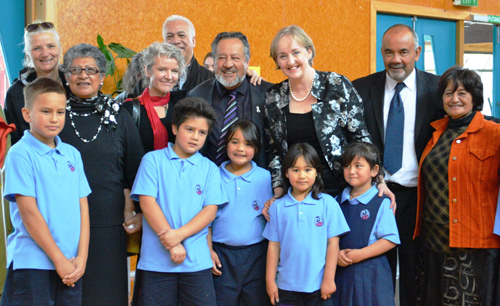Budget 2012 will provide $7.6 million over the next four years for an education programme that gives schools and children a hands-on approach to looking after the environment, Environment Minister Amy Adams and Māori Affairs Minister Pita Sharples announced today.
Published: Thursday, 10 May 2012 | Rāpare, 10 Haratua, 2012
Thursday, 10 May 2012 10:47 am | New Zealand Government Press Release
Media statement
Budget 2012: Environmental programme benefits schools

Budget 2012 will provide $7.6 million over the next four years for an education programme that gives schools and children a hands-on approach to looking after the environment, Environment Minister Amy Adams and Māori Affairs Minister Pita Sharples announced today.
Enviroschools and Te Aho Tu Roa (the Maori immersion approach) encourage children, their schools and their families to think and act sustainably – at school, at home and in everyday life.
“I’m pleased that, in tight economic times, we can provide substantial funding for this valuable programme as a result of the Government’s confidence and supply agreement with the Māori Party,” Ms Adams says.
“The Government is committed to improving and maintaining the quality of our environment and this funding will provide a valuable contribution towards the support of the Enviroschools programme.”
The $7.6m boost consolidates the interim budget negotiated by the Māori Party in 2010 for Enviroschools and Te Aho Tu Roa.
“This funding from the Government enables Enviroschools to continue, and Te Aho Tu Roa to be further developed in Maori immersion schools, with support from programme partners that include private businesses and local government,” Dr Sharples says.
“Because Enviroschools and Te Aho Tu Roa involve students, schools, whānau and communities, the results of this investment will be long-lasting.”
Ms Adams adds: “Children are our future environmental leaders so it is heartening that so many of them want to be involved in this initiative.”
Students will undertake initiatives to improve their own schools, including reducing waste going into landfill, installing water tanks and planting their own vegetable gardens.
“The programme has a strong bicultural approach, recognising that Māori perspectives and knowledge of the environment enrich the whole learning process," Dr Sharples says.
ends